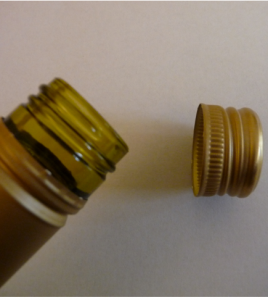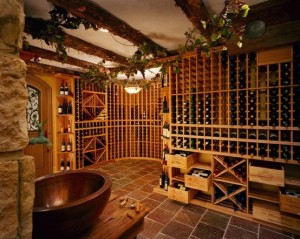 Nearly ten years ago I wrote a feature entitled, “To Screw or Unscrew the Cap” in which I made a case for metal screw caps. A decade ago cork finished nearly every fine bottle of wine and the Stelvin metal cap was a relative novelty, except among Australian and New Zealand wineries. The prevailing sentiment in America was that screw caps, regardless of their origin were fit only for inexpensive wines with limited ability to age. No more! What started as a novel way to avoid the taint of infected cork that had become increasingly more prevalent with the shortage of high quality cork has now become mainstream in nearly all wine producing countries. Today, even Verget, the great French Burgundy producer has adopted the metal screw cap for his top end wines. Why? Screw caps work, and they work well, plain and simple. In fact, they finish wines better than cork.
Nearly ten years ago I wrote a feature entitled, “To Screw or Unscrew the Cap” in which I made a case for metal screw caps. A decade ago cork finished nearly every fine bottle of wine and the Stelvin metal cap was a relative novelty, except among Australian and New Zealand wineries. The prevailing sentiment in America was that screw caps, regardless of their origin were fit only for inexpensive wines with limited ability to age. No more! What started as a novel way to avoid the taint of infected cork that had become increasingly more prevalent with the shortage of high quality cork has now become mainstream in nearly all wine producing countries. Today, even Verget, the great French Burgundy producer has adopted the metal screw cap for his top end wines. Why? Screw caps work, and they work well, plain and simple. In fact, they finish wines better than cork.
In nostalgic moments, I bemoan the loss of a perfect cork exiting every special bottle of wine but the reality of the situation is that not all of those “special bottles” were as special as they should have been or could have been had they been finished with metal caps. Ten years of positive results with screw caps finishing top end wines should be all the testimony we need. Nevertheless, perceptions die hard, so I would like to reiterate my initial arguments in favor of the metal cap.
Natural cork is a limited commodity. It is the refined bark of the cork oak, which grows only in certain Mediterranean climates and locales. Moreover, it takes decades for a cork oak that has been “harvested” or flayed if you will to once again bear sufficient cork for our precious wine bottles. In a world enamored of wine, the supply of cork simply cannot keep up with demand. There just isn’t enough genuine cork to go around, and even less high quality cork to be had. Hence, the plethora of alternatives: composite corks, hybrid corks, synthetic corks, and now screw caps. Each has its attributes as well as its drawbacks, with the exception of the metal screw cap whose only downside is its lack of aesthetic appeal. Aside from aesthetics, the modern screw cap is the perfect seal for most wines. It provides an airtight seal, rarely leaks and never spoils or imparts an off taste or smell to a bottle of wine. Surprisingly, it appears to allow fine wines to mature slowly and consistently in bottle as well. The same cannot always be said for all genuine cork or the “pseudo corks” we find closing many wines today, so let’s not hold the metal screw cap in contempt. Besides, the metal cap is here to stay, whether we like it or not, and I predict that more great names in wine will soon adopt or expand their use of the metal screw cap.
Don



